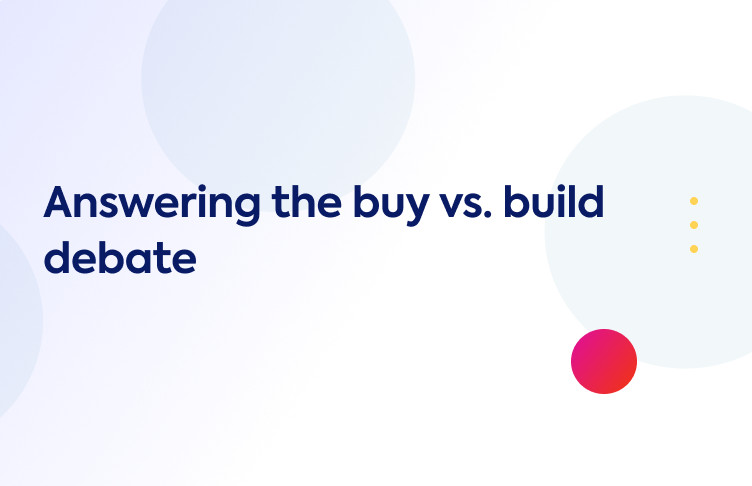
With demand for integrations growing at an ever increasing rate, only one question remains: ‘What is the best way to implement them?’
Even before the impact of Covid-19, the business world was embracing a new and exciting digital-first era. Now, due in part to the ramifications of the global pandemic, the amount of data being produced has soared higher than ever before, and there’s never been a better time to embrace it.
With API technology improving every day, one response is for organisations to build their integrations in-house. This gives engineers the flexibility to decide and customise how data is collected, consolidated, and stored by building features unique to the business, instead of what might be offered by a vendor. But with this type of work at risk of becoming time consuming, complex and costly, could there be a more efficient solution out there?
Why choose Codat?
Codat was born as a result of the founding team’s hands-on experience developing integrations for a fintech lender. Ultimately, it proved to be a painful experience that took a large amount of resources away from the core lending platform. The team also realised there were no solutions in the market that met both the data requirement of the business and the technical needs of the developers.
Today, Codat is the platform for business data, handling all the heavy lifting involved in integrations, including authorisation, data standardisation, and ongoing connectivity. This leaves clients free to focus on how customer data can improve their product or service.
There are many reasons why financial service providers choose to partner with Codat rather than build their integrations in-house.
Unrivalled global coverage
The financial software market is increasingly fragmented. As a result, building a full set of integrations to include all the leading financial platforms used by SMBs can take even the most dedicated and experienced team years to complete. In the time it takes to build and release these integrations, financial service providers can lose customers to competitors. With Codat, you can be up and running with unrivalled global coverage in a day.
Best-in-class standardisation
Different financial platforms run on all sorts of data types, varying in structure, complexity, and approach. This is why data standardisation is one of the more intricate and important aspects of integrations – it’s so easy to get wrong.
Thousands of data sets flow through the Codat platform on a daily basis, which means we have substantial experience handling the challenges this presents. Our team of experts proactively monitor and handle any changes made to the format of the financial platforms we support; we sort, convert, rewrite, and rework all the data until it is fully compliant with the standardised format. This is likely just one of the many reasons that ‘92% of banks state that partnerships with non-banks will be highly important or important in the future’ and ‘71% of banks agree or fully agree that partners/collaboration will be required to keep up with the pace of innovation’, according to a recent PSD2 survey.
Expert ongoing support
Even once the integrations are in place, the hard work is far from over. Integrations by their very nature are complex and it’s important to ensure they remain up to date and consistently meet a wide variety of edge cases – this requires constant and significant resources.
Codat maintains and monitors each connection so you don’t have to. The Codat platform is designed to make it easy for financial service providers to connect with financial platforms, and tools like Codat’s Sync Health Site make ongoing support simple.
How does Codat do it?
We offer a number of products that make the adoption, utilization, and management of integrations so much easier.
Link enables you to embed a white-labelled link directly into your application to allow your SMB customers to seamlessly connect their accounting, banking, and commerce data in a matter of minutes. We offer this functionality both as a code and no-code solution.
Visualise: Once you have gained consented access to financial platforms, Visualise enables you to view the data and determine performance trends in a simple and highly consumable format, enabling you to understand the full history of a business at a glance.
Insights: Enhance your understanding of your business customers with actionable performance indicators such as metrics, intelligent categories, and data integrity features.
If you would like to learn more about how Codat could help, please feel free to contact [email protected] or visit www.codat.io.